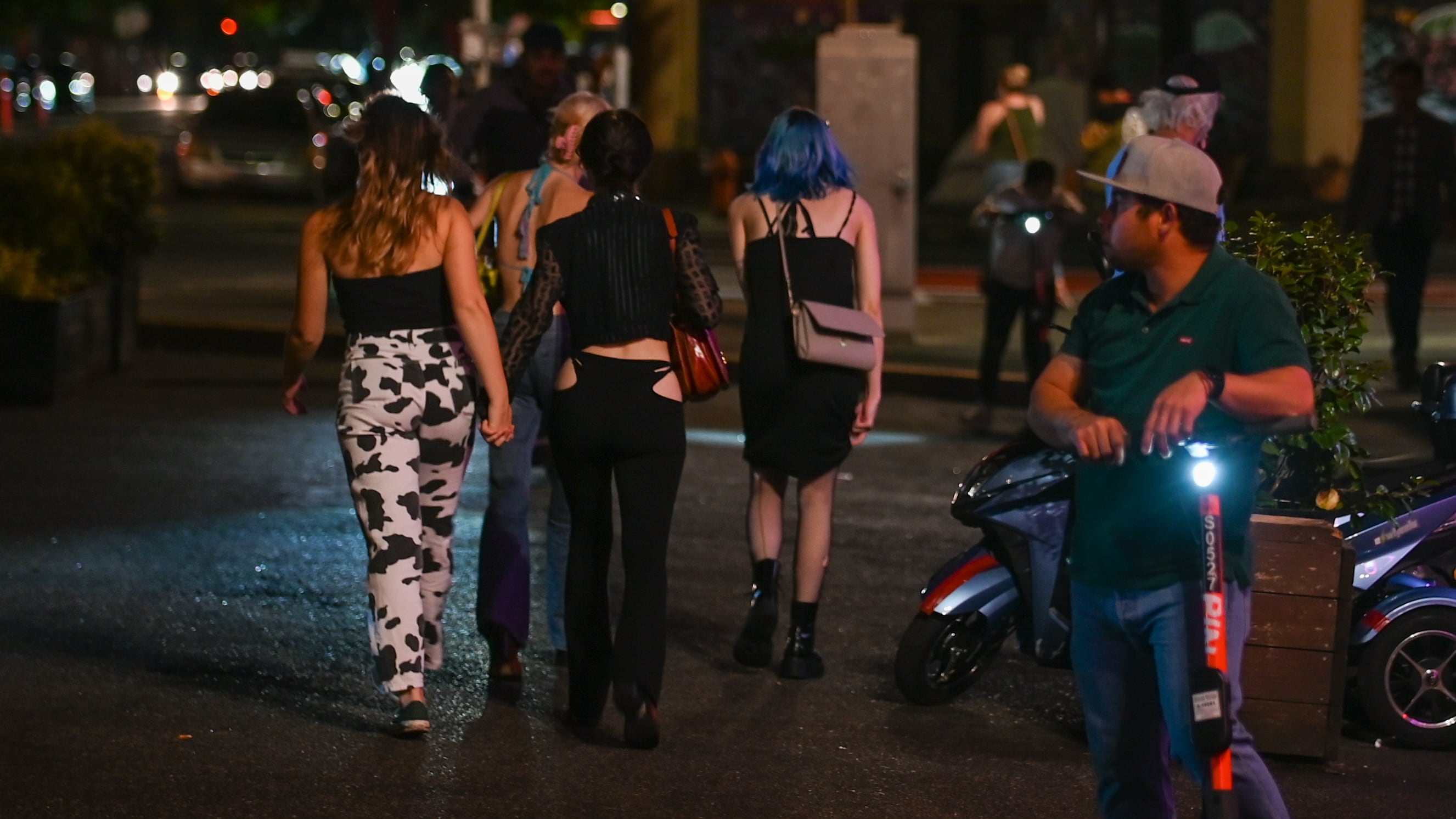Three employees of a Central Eastside dance club say as many as 1,000 people might have been exposed to the coronavirus between Friday and Sunday, Dec. 17-19, and may not have been alerted.
The employees, who work at the club 45 East, all said that six of the club’s staff tested positive for COVID-19 following a weekend of sold-out shows.
The employees asked WW for anonymity, fearing they could lose their jobs or have trouble finding future employment.
“It was most of the front-of-house staff (bartenders and servers) who worked on Friday,” an employee told WW. “By Tuesday, I think most of us tested positive for COVID.”
Peter Webb, the club’s manager, confirmed to WW that positive COVID tests did occur among his staff and that the club postponed a show Dec. 23 because of COVID.
“We did receive reports of positive tests from staff members this Tuesday,” Webb told WW via email. He did not specify the number of positive tests.
Webb did not respond to questions about whether the hundreds of patrons of the weekend’s shows were notified. No such notification could be seen on the club’s social media accounts or website.
A photographer who took pictures at the club on Friday for 45 East said he was not notified of the outbreak. Paul Garcia confirmed to WW on Dec. 24 that management did not inform him of the positive tests.
The positive tests among dance club staff come as Portland nightlife walks an uneasy line between holiday-season parties and the rapidly spreading Omicron variant of the coronavirus, which is more transmissible than previous virus strains.
45 East—a dance hall at 315 SE 3rd Ave., in a building that previously held Rotture and Branx—is a two-floor warehouse-style nightclub hidden by an unassuming warehouse exterior. The club received an Oregon liquor license last July. Known for sold-out electronica shows, the majority of 45 East’s red-bricked interior is taken up by a large dance floor, with a maximum capacity of 750 people.
Garcia’s photographs at a Dec. 17 concert, featuring dubstep artist Blunts and Blondes, show a gyrating crowd of hundreds of dancing concertgoers bathed in a rainbow of laser lights. Many of them were not masked.
45 East’s health and safety policies, listed on its website, require proof of vaccination or a recent negative COVID test for entry. In keeping with Oregon’s statewide indoor mask mandate, masks are required.
No state or federal law requires businesses to report positive COVID-19 tests of employees to their customers. Instead, Oregon OSHA says employers must alert employees who were in close contact with a person who tested positive. Webb, the club manager, says he followed those rules.
But the three employees say that if patrons don’t know about the test results, that could increase the risk of patrons carrying the virus with them as they travel to see family this Christmas.
“On a busy night, we would usually have more than 600 people, so it could be 1,200 people that got exposed over the two nights,” one anonymous source said. “I had to tell somebody.”
News of the first positive COVID test spread quickly on a series of group chats. By late evening on Tuesday, Dec. 21, almost the entire front-end staff in the chat reported they could not work due to health reasons, except for two who were out of town.
Chat logs obtained by WW show club management attempted to fill one of the absences caused by sick and quarantining employees, without telling the replacement staffer of the positive test results.
The request was met by outrage.
“You want me to risk my life for a 900 person show? Not tell me 70-80% of the bar staff is out with COVID?” the prospective fill-in staffer replied by text.
Others remained alarmed by the prospec that sickened staff could mean a wider spread of COVID during the holidays.
“One of my greatest fears is that a customer brings COVID to their family when they go back home for Christmas,” one worker told WW. “It’s not about us anymore, it’s about the bigger picture.”

